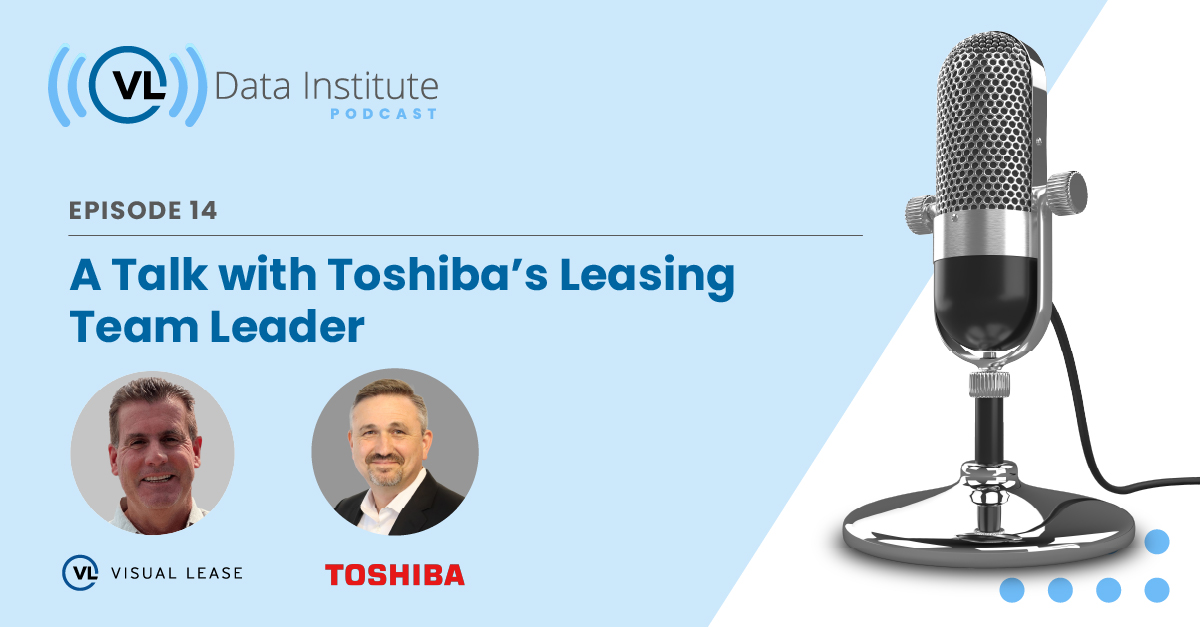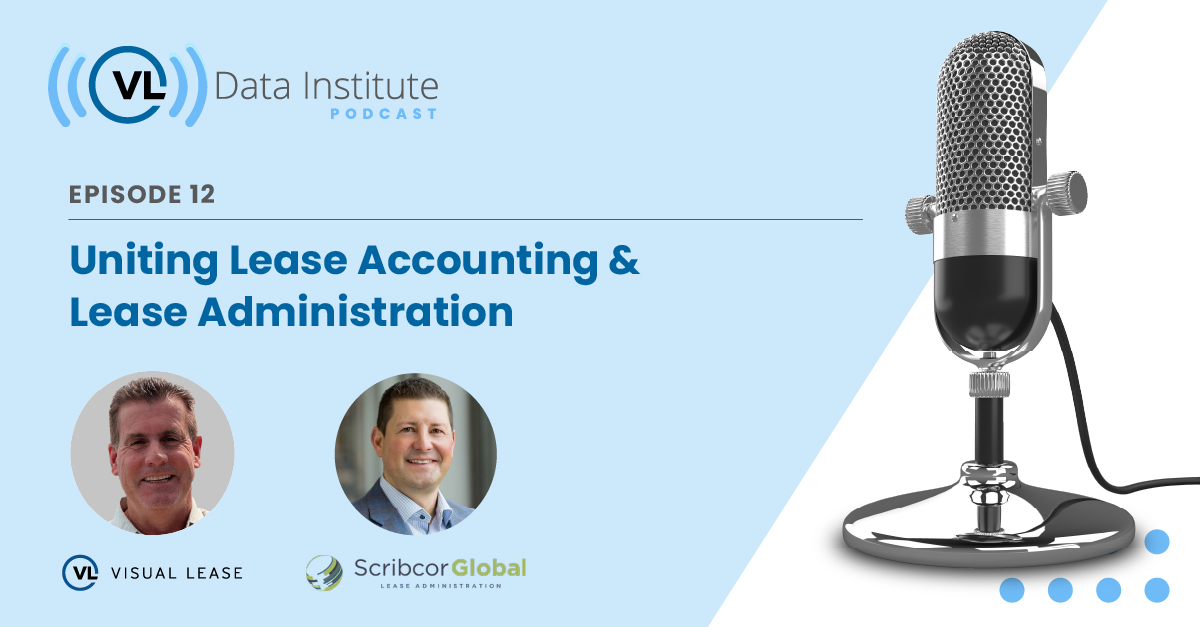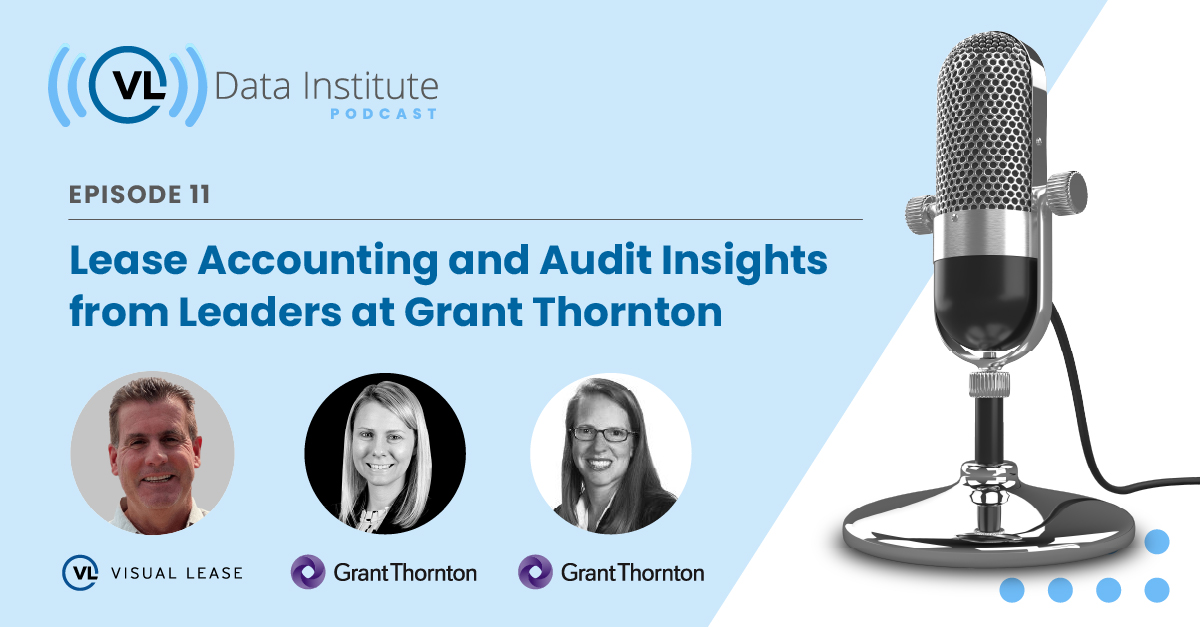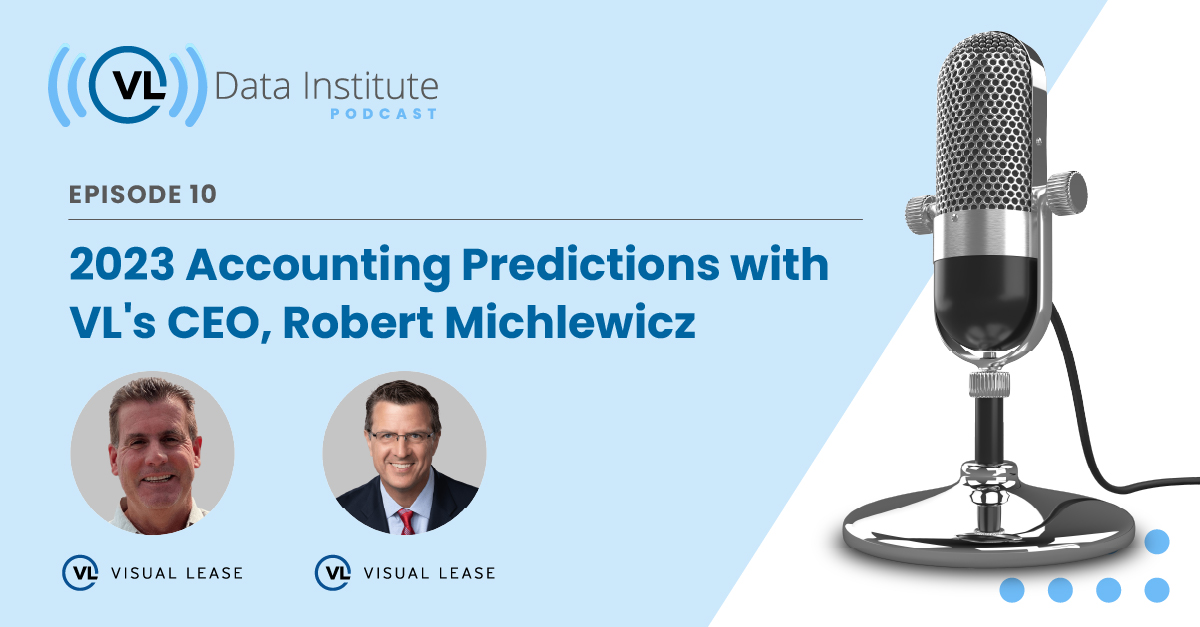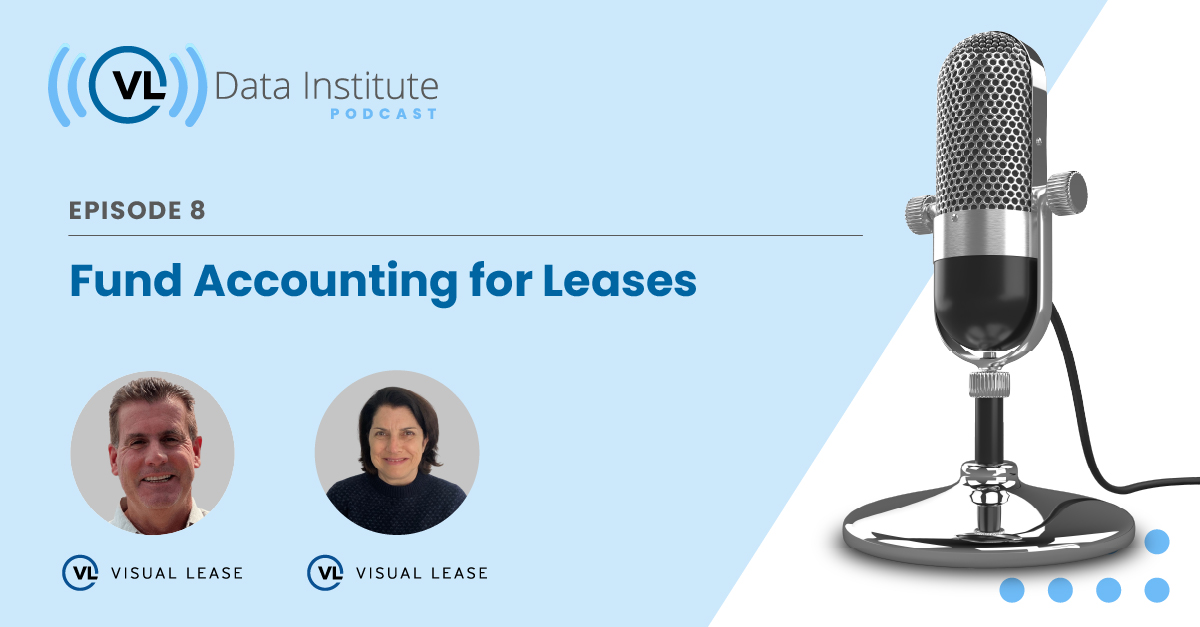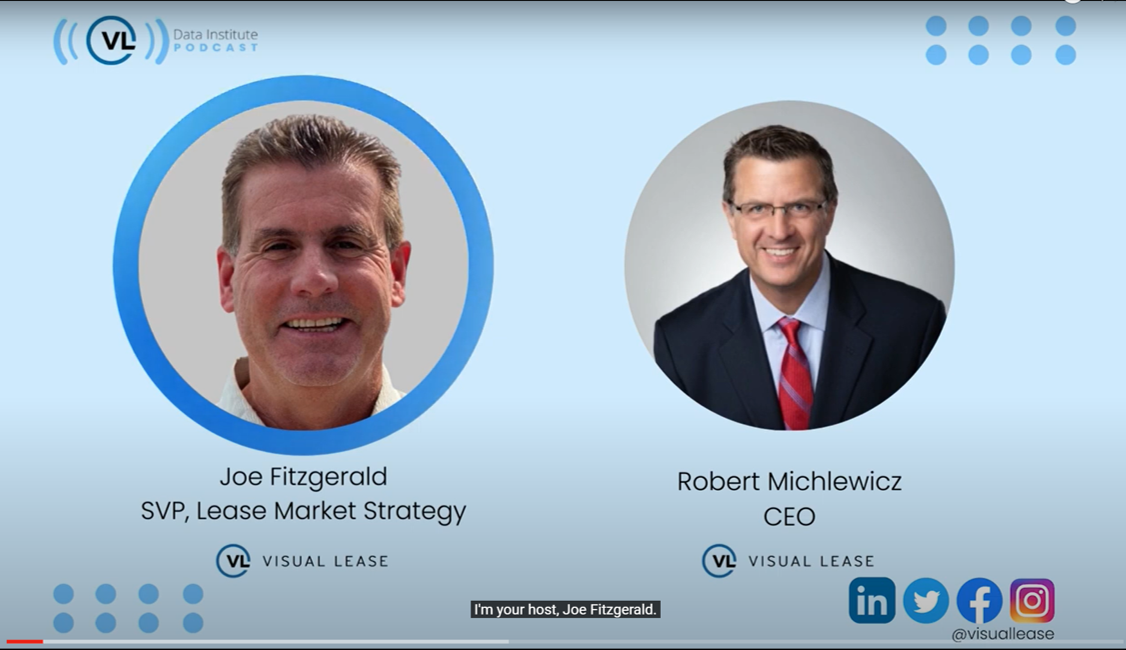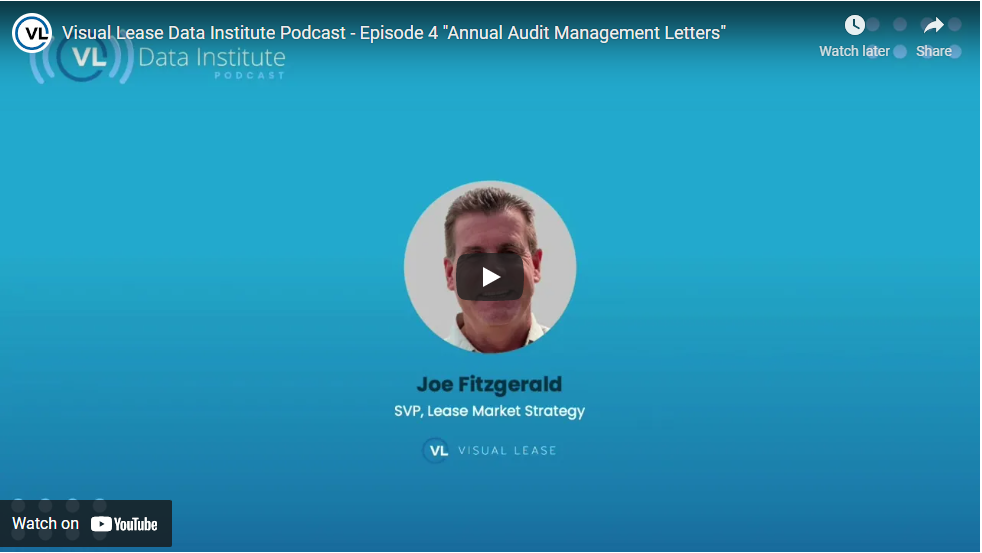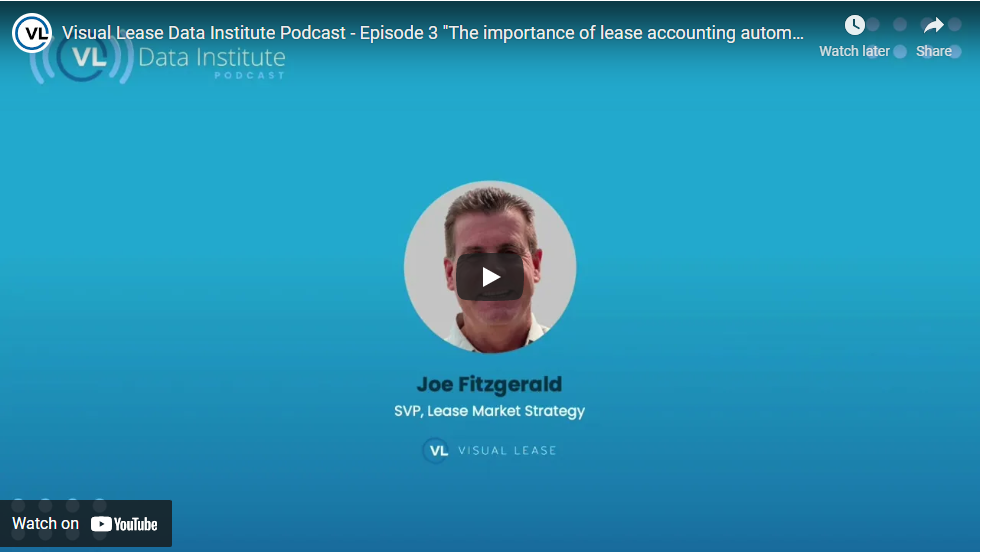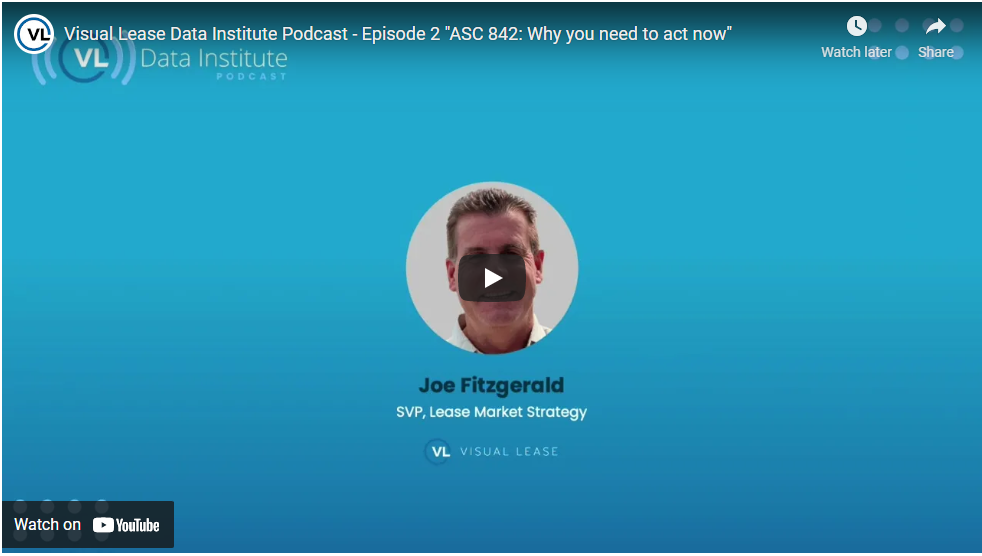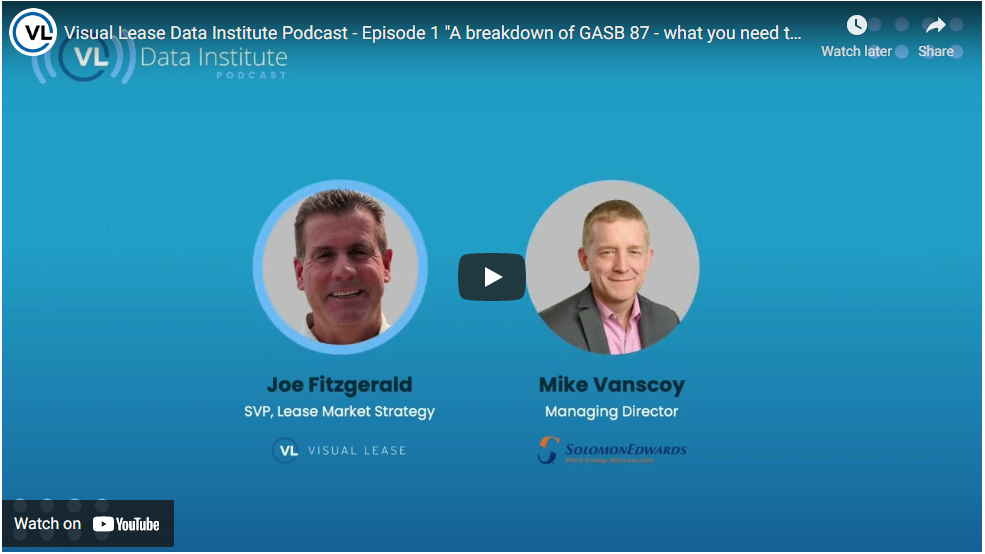SVP of Lease Market Strategy and Host Joe Fitzgerald sat down with Principal of RSM (a valued partner of Visual Lease) Christian Wood and discussed tax lessons learned from the COVID-19 pandemic for retail tenants and landlords.
Read Transcript
VLDI Podcast Episode 7 Transcript
Joe:
Welcome back to the Visual Lease Data Institute podcast. I’m your host, Joe Fitzgerald. Today’s guest is Christian Wood, a Principal at RSM, one of Visual Lease’s valued partners. Christian leads RSM National Tax Practice in Washington for accounting credits, incentives and methods. He specializes in helping clients navigate complex tax environments to make informed business decisions, while championing cross communication and collaboration to achieve the best possible outcomes.
Welcome, Christian. It’s great to have you on the podcast.
Christian:
Thank you. I’m excited to be here.
Joe:
Now, several months ago, Christian and I collaborated on an article for Reuters Tax Journals. And in that article, we discussed tax lessons that retail tenants and landlords learned following the pandemic. You know, it’s been our perspective here at VL that as companies grappled with the pandemic, they may have benefitted from an unforeseen advantage of having to comply with the new lease accounting standards, which is that maybe for the first time, companies had all of their leases in a central location with ready access to the terms and lease clauses that companies would need readily available if they plan to engage with their landlords as they sought certain financial accommodations and or concessions brought on by the pandemic. With that said, many tenants then went into those conversations without necessarily considering the less obvious tax and cash implications of those negotiations. So with that thought in mind, let’s dive in and get your thoughts on the matter. So first question for you, Christian. What were some of the main lessons that retailers learned about how they could utilize their lease agreements to combat the challenges they experienced during the early days of COVID 19?
Christian:
So a lot of our clients are rental markets, and they’re good at what they do, but they may not be tax experts. So a lot of the sort of lessons learned in the first step is educating the client on what are the tax implications of some of the decisions. There’s a code section 467 that when it applies, it can either make things really easy or really difficult to account for leases under a federal tax principle.
And so a lot of it was just sort of educating them on how a 467 lease works and what are the implications of changes. One of the basic premises behind 467 is that income and expenses inside of a transaction occur at the same time between lessor and lessee. So when a lessee has to pay income and has an expense, I mean not income, but rent and it has an expense, then the lessor has income in the same time.
And so there’s sort of that matching principle that not everybody realizes. And then 467 leases also apply equally to those people. And the cash method of accounting and the accrual method of accounting like I got sometimes with Well, what do you mean I have income I didn’t receive any cash? Well, that’s when it was due and the other side got an expense.
So you’re going to have income without the cash. And that was one of the problems that presented.
Joe:
Christian, one thing, you know, we’re talking about retailers. And early on, we also saw retailers that tried turning to e-commerce to drive additional revenue. Is it true that this pivot to e-commerce didn’t necessarily help keep a number of companies from going out of business?
Christian:
True. Now, while some companies were innovative and succeeded online, a lot of companies weren’t necessarily prepared for it. And so online wasn’t the savior. And so they were kind of hemorrhaging cash. And that’s where we tried to come in and sort of help them sort of staunch the hemorrhages and not have to sort of go through all of their resources when they had certain things, they could have done to somewhat reduce the strain on the resources.
Joe:
So, you know, we did see a lot of landlords forgo rent for a period of time. What are the potential tax consequences when they did things like that?
Christian:
Sure. So, sort of one of three things happens, right? First is the rent was still due. We just said, you know, pay it a month, a year, whatever. The lessee would still have a rental expense under 467 if it applied. And the landlord would still have income even though they didn’t have cash. And so can you imagine having to pay taxes without the cash necessary to pay the taxes because you had to pick something up that you weren’t anticipating.
There’s another example where you had a renegotiation of the lease and changed the economic terms, and so that there was perhaps a rent abatement in the first few months or year, and then you had an increase in rent over time, and that would have sort of changed the recognition in of income and expense on both side as it was sort of in essence a new 467 lease.
So those are kind of some of the examples of without the proper knowledge and how it sort of was treated and the tax implications that we sort of struggled with with some of our clients.
Joe:
So, if I was going to turn what I’m hearing from you into a statement, I’d be curious whether you agree or disagree. If businesses had a stronger understanding of the lease accounting and tax implications of the pandemic, could they have mitigated some of the negative impacts they experienced?
Christian:
Yes, I think so. And the example where, hey, rent is still due, we’ll just defer you paying rent, right? Landlords had to pick up income, whereas if they knew if we restructured the lease and had a rent abatement in the earlier years and then sort of had a rent increase in the latter years, they could match the cash with the income pickup.
And then on the lessee side, right, if they needed a deduction, they say, okay, I’ll pay you back. They still get a deduction, but they wouldn’t have to do part with the cash necessarily. While there were some extensions of allowing in also not to be limited to 80% of revenue. If you had an annual income in the following year, you may not get the full benefit of that deduction until a year or two down the road.
So, sort of planning out where you were at tax wise and whether a deduction would be good in the current year or in the future year. So, for example, let’s say it’s not going to do me any good this year. We’re going to have a loss. But next year it’s going to be giving me good because I expect to come out of it and start making money then.
So, I would be better off renegotiating the lease then simply deferring payments under the lease.
Joe:
You know, we were focusing on retailers, but I’m assuming there had to be issues that extend to other types of businesses and any unique issues for other industries that you want to call out.
Christian:
Yeah, I don’t know about unique, but for like retailers, even manufacturers that own their own property with the pandemic hitting, they kind of blew through and had to use up their assets to sort of survive. And so often some of our clients were left with the only asset that was worth any money was the land with which their manufacturing plant was on.
And so, they didn’t really want to necessarily get rid of it because they still need to manufacture their products. And so, what they do is they sell the land and lease it back. And depending upon if there was gain built in or where people’s positions were, you know, whether you had needed income or not, there were ways to structure a sale and leaseback under 467 that allowed you to sort of better plan the income and the expense side of those transactions.
Joe:
That could see them needing to monetize what they could to get through. Any closing thoughts?
Christian:
Yes. So one of the reasons I got into tax was when I was in undergrad, I was in a tax class and they were telling me that, hey, someone made this business decision that made sense at the time, but they didn’t really talk to the tax person. And so all these horrible implications of what happened that they didn’t intend.
I’m a firm believer that tax should never drive business decisions, that you shouldn’t make decisions simply based on tax results, but that once you make a business decision, I’m a big believer, and once you sort of decide what you want to do business wise, bring a tax person and let them sort of tell you what traps to avoid so that you don’t end up with any surprises
Because tax could end up being a significant chunk of a transaction. And if that goes wrong, it could really change the economics. So again, I’m just a big proponent of why don’t you make the business decision, bring someone in who knows tax so they can make sure it’s structured in an efficient way.
Joe:
I would agree. Christian, thanks so much for being here and sharing your expert knowledge on taxes in the retail space and beyond. As we talked about, impacts maybe on other industries. So folks, that concludes today’s episode of the VLDI podcast. If you enjoyed this episode and want to catch up with all things VLDI, be sure to follow our LinkedIn, Twitter, Instagram and Facebook pages @VisualLease.
And don’t forget to tune into our next episode of The Visual Lease Data Institute Podcast, where our focus is on helping you and your company transform your lease accounting compliance requirements into financial opportunities.














